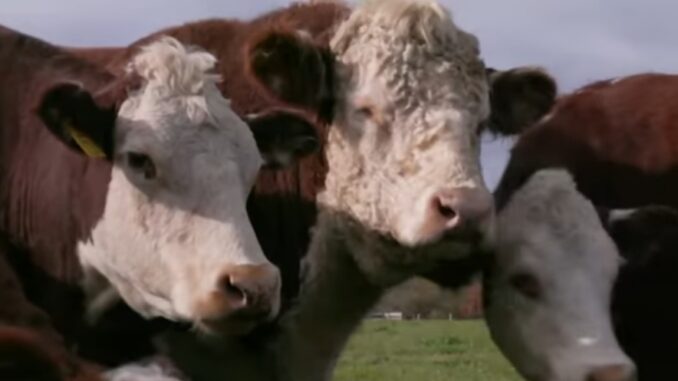
Cows are gassy, that’s just a fact. Bovines aren’t the only ruminants in the world, but with an estimated moo-mbership of around 1 to 1.5 billion grazers (depending on the source) they command attention and respect like no other species for the massive volume of methane they burp out as part of their natural digestive processes. Fifteen percent of all methane emissions worldwide is attributable to cows. That’s a problem, because methane (CH4) is a greenhouse gas. That is, it’s scientifically proven that methane released into the atmosphere can trap heat energy from the Sun with great efficiency. What’s more, methane absorbs 28 times more solar thermal energy than carbon dioxide (CO2).
A potential solution is on the way, following a roundabout discovery. Joe Dorgan is a fifth-generation farmer from Prince Edward Island, Canada. His family has been gathering seaweed from the island’s beaches for about a century, to be used to feed their cows and fertilize their fields. Experience taught the Dorgan family the value of seaweed: cows fed seaweed produced more milk and more calves, due to the high levels of vitamins and minerals it contains.
Approximately fifteen years ago, Dorgan applied for organic certification of his dairy products. Naturally, the seaweed had to be tested as part of the process, bringing the Dorgan family discovery to the attention of researchers. These scientists also found that seaweed reduced the amount of cow-produced methane by more than a third. Expanding their research, they found that a common genus of red seaweed, Asparagopsis, completely eliminated methane from bovine burps. (It sounds like magic, but it’s biology and chemistry). More amazing still, only 0.2% of the cow’s daily food consumption needs to consist of Asparagopsis in order to eliminate methane from the ruminant’s belches.
The easily grown red seaweed can be mass-produced by means of aquaculture cultivation. It will take years before the production of Asparagopsis can meet the needs of a billion cows, but it’s nice to know people are working hard on it.
Now, can they do the same for humans?
“How harvesting seaweed could help in the battle against climate change” (6:56)
